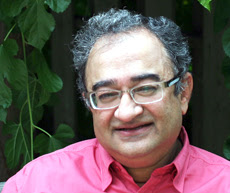September 21, 2004
Keep mosque and state separate
By Nadia Khouri
National Post
http://www.nationalpost.com
The irony in the Ontario government's decision to consider allowing anIslamic shariah court is that many Muslims themselves oppose the idea.Muslims, like people of other faiths, routinely consult their spiritual leaders on a variety of matters.
It's an informal affair. But granting ashariah court the power to enforce binding arbitration means that those whoinnocently seek consultations with clerics may become trapped in legalities,with religious specialists settling disputes according to the law of divine command -- passing judgment according to what the faithful must do to please God, not what the state must do to protect citizens.
Since shariah is a comprehensive law covering the minutest details of publicand private life, many Muslims are concerned by the notion of Islamicscholars setting norms of behaviour for them, with the imprimatur of theirattorney general.
The Canadian Council of Muslim Women has urged fellow Canadians to fight theAct. Homa Arjomand, a former refugee from Iran's Islamic regime and aco-ordinator of the active International Campaign Against Shariah Court inCanada, has been warning in several forums that these tribunals will compelabused women to stay in abusive relationships. After all, Surah 4:34 in theKoran, a basis for shariah, clearly says: "Good women are obedient, guardingin secret that which God has guarded.
As for those from whom you fear disobedience, admonish them, then banish them to beds apart and strikethem."Many Muslims resent such separate-but-equal moral isolationism.
A strong denunciation came from Tarek Fatah, a founder of The Muslim CanadianCongress, who called the use of religious laws to settle legal matters racist. "When somebody tolerates my mistakes ... this is the racism of lowerexpectations."
The idea that all Muslims are bound by shariah is a misconception forced onthe public by Islamists. Nothing could be more attractive to them than theidea of legally binding Muslims to shariah via arbitration. In other nationswhere shariah is enforced -- whether as the state law, as in Saudi Arabia orIran, or as part of a dual system of religious and secular laws, as in Egypt or Jordan -- open opposition by reformers and secularists condemns them topersecution, imprisonment or death.Shariah courts have been abused in other countries and could be abused here.
How would a shariah court, for example, treat an accusation of apostasy --which, if found true, would mean the apostate could not be married to aMuslim and a divorce would be necessary?Would a shariah court uphold freedom of conscience and belief, guaranteedunder section 2 of the Canadian Charter of Rights and Freedoms, a principleat odds with a strict reading of shariah? Would it force the accused topublicly recant, hence going against the Charter? Would it counsel divorce?
Though polygamy is illegal in many Muslim countries, it is not invalid undershariah. A man can keep a wife in Canada and other ones in another countrywithout the Canadian wife, his Canadian-born children and Canadianauthorities being able to intervene in matters of divorce, alimony andcustody -- all of which are dealt with in different ways by the four Sunniand the two Shia schools of Islamic law.
Then there is the issue of Islam's conception of contractual, temporarymarriage "for pleasure," whose character is extensively codified especiallyby the Jaafari Shia school. How would Canadian family law interpret"temporary marriage" for the "temporary wife" who may be left with permanentchildren?Multiculturalism cannot be interpreted in a manner that trumps Charterequality guarantees and the universal human rights that underlie them. Humanrights are vested in the individual, not the group.
When special powers aregranted to groups rather than to individuals, conflicts between the groups'leaders and their members are sure to arise.Who is trying to persuade the Attorney General that these courts are thesuitable venues for arbitrating disputes among Muslims? A group of shariahadvocates led by Syed Mumtaz Ali of The Islamic Institute of Civil Justice.
For two decades, it has been quietly lobbying successive Ontario governmentsto enshrine in arbitration law an Islamic Court, known as Darul Qada. Theview of Canada from Darul Qada's Web site is that of a judicial wastelandwhere, we are told, "Muslim minorities are like wandering Bedouins," with nosay in the laws of the land.
The "wandering Bedouins" have wasted no time rebuttng Darul Qada'spresumptions and opposing a shariah court. Their concerns should be heeded.
-------------------
Nadia Khouri is an Egyptian-born Canadian who teaches humanities at DawsonCollege.
Subscribe to:
Post Comments (Atom)

3 comments:
Why does she care? Khouri is a Christian name.
Khouri is a Jewish name
Khouri is a defining name
Khouri can't play with us
Hamza Khouri can't exist
Larbi Walker is not Canadian
Meem is smart not racist
Shariah court does not affect me
does not affect my husband
does not affect my sister in law
does not affect my son
My name is pagan and I have no voice here
Meem, thank you for enshrining your ignorance.
Your blog keeps getting better and better! Your older articles are not as good as newer ones you have a lot more creativity and originality now keep it up!
Post a Comment